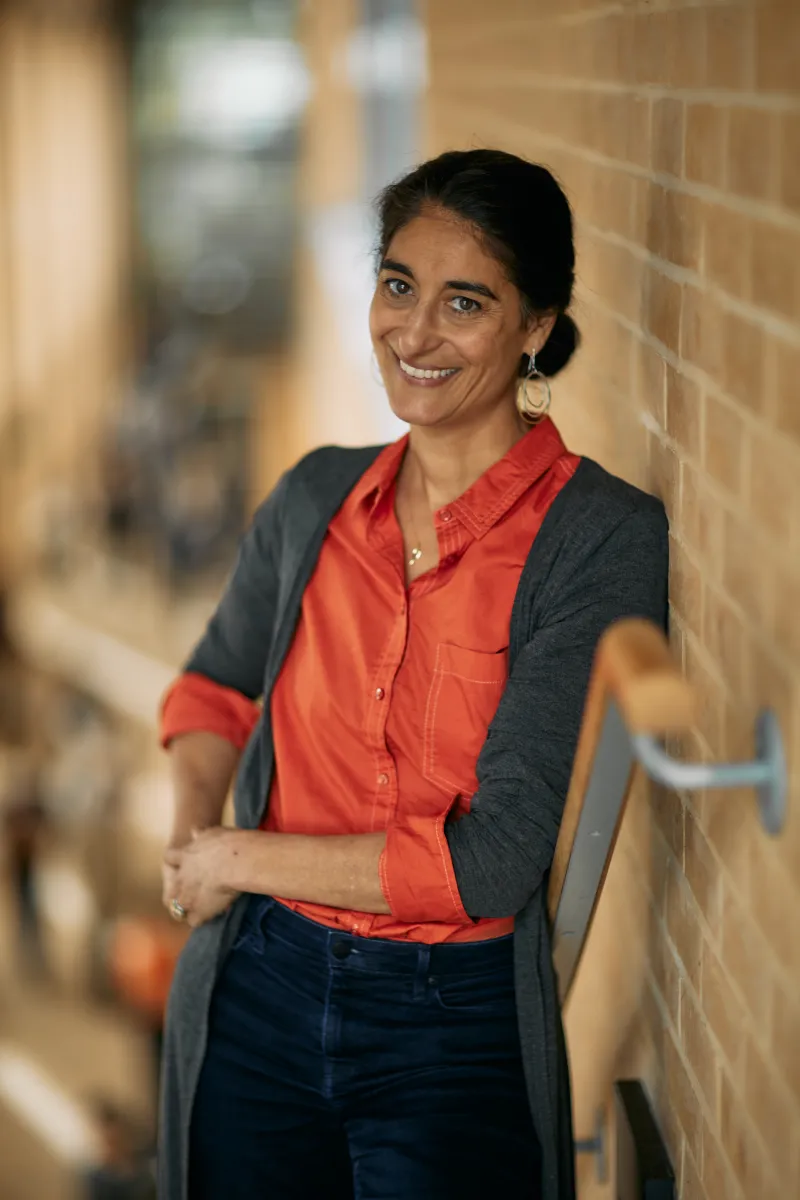

Gita joined FilmAid as the Director after decades of producing, programming, and fundraising for documentary films. She spent many years with Kartemquin Films, a Chicago-based film collaborative that empowers documentary filmmakers who create stories that foster a more engaged and just society.
At Kartemquin, she produced the acclaimed series The New Americans, a multi-part PBS series following immigrants and refugees from across the world through their first years in the US. Gita also served as Executive Director of the Big Sky Film Institute and the Big Sky Documentary Film Festival, where she led thematic programming around Indigenous storytelling, youth programming, and environmental justice.
She has taught documentary film at the University of Montana in the School of Journalism, where she also raised funds to build news literacy, environmental journalism, and storytelling across rural and Native American communities and reservations in Montana. She currently sits on the board of the Independent Television Service (ITVS), an organization funded by the Corporation for Public Broadcasting to bring diverse voices to American public television, and serves as a Grants Advisor to The Redford Center, a film funder that uses the power of storytelling to galvanize environmental justice and regeneration.
IDA: Please tell us a little about yourself and your profession or passion.
Gita Saedi Kiely: Growing up in Chicago, I recall being very aware that my Iranian-American experience was not represented in the media around me - the journalists who reported the news or the stories I was fed in films and television. It seemed connected to the xenophobia and ignorance I experienced as well.
Seeing the films of Mira Nair changed my life. I realized the stories of the other could expand one’s understanding of completely different groups to share experiences of just being human. I quickly found that my interests were more squarely in the real, and I discovered documentary film soon after I graduated college. From Associate producing at CBS in New York to finding my voice and footing at Kartemquin Films, I realized this work had meaning and impact for me far beyond other things I could spend my time doing. I’ve worn many hats in the documentary film ecosystem, and now I find myself being smitten with helping others find their path to tell their stories.
IDA: When did you first start working in the documentary field?
GSK: My first real job in non-fiction was as a PA in Dublin, Ireland, for Heritage Productions - making films for Irish-Americans on you and your Celtic ancestry. It was actually a blast. I then moved to New York after that and did a lot of PA, craft service, location, and coordinating work before I landed at CBS as an Associate producer.
IDA: We are honored to have you all as our organizational members! Please tell our readers a little about FilmAid and the important work you all do!
GSK: FilmAid is a global project that harnesses the power of film to support communities worldwide. Our work started 24 years ago in refugee camps and has evolved into supporting filmmaking in all underrepresented communities. In 2021, we were acquired by Internews, a global media development NGO that supports local, independent news and information in underrepresented communities. Our programs include filmmaker training, mentorships, funding, and community and civic engagement. We know that STORIES ARE POWER. Stories shared through film are a powerful part of a community’s information ecosystem.
IDA: Do you have any advice for young filmmakers and professionals in the field?
GSK: I think what is most important is to understand that mastering storytelling and your cinematic style and expertise takes time. Don’t be too hard on yourself if your first film is not perfect. This craft takes practice, collaboration, and a little bit of magic.
IDA: Lastly, is there anything you want to share with our members?
GSK: I’ve been fortunate to wear many hats in the documentary film ecosystem - as a producer, a festival director, a teacher, and a nonprofit leader. Collaboration and partnership are key in this industry, not only to tell important stories but to get them into the world and have an impact.
We are just now building our FilmAid Network. I would invite IDA members to join us as mentors and makers – please email me directly if you are open to connecting with our aspiring filmmakers across the globe who are just now joining our community.